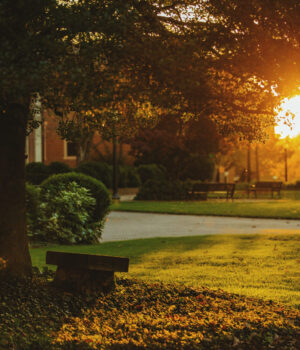When our college began its Program Evaluation Process (PEP), it made its mission clear. According to PEP guidelines, “Roanoke College develops students as whole persons and prepares them for responsible lives of learning, service, and leadership.” Our curriculum is set up to ensure students are well-rounded so as to become the best versions of themselves they can be. While our mission is clear, the pathway is paved with differing opinions. The question is raised: Is such a well-rounded education what we are being provided?
Not long ago, professors at our school put forth a proposal to make an amendment to our college’s general education requirements. Their intent was to propose the addition of an Arts Designation for our students.
Certainly, it seems like an odd thing to lack. The proposal put forth included research that asserted that, when compared to peer institutions, only two out of sixty-six lack some form of Arts Requirement, with Roanoke being one of them. In fact, the ratio of our required courses compared to the average (2.15 Math/Science, 1.72 Social Sciences, 2.26 Humanities, and 1.31 Arts) is striking, prompting the proposal to suggest that we “drop the requirement for INQ 241/251 and replace it with an Arts Requirement.”
Of course, the proposal argues more than conformity with our peer institutions. Perhaps more accurately, one could say that the research shows peer institutions have simply recognized the value of art in a way our administration has failed to. “Art is essential to citizenship. […] Studying the various arts of human production ‘cracks open a too-small view and releases us into a wider play of thought. And it encounters this liberating openness in the vision of artists.’”
This proposal was, unfortunately, shut down quickly and without nearly enough discussion. Professors were told that PEP would look at such issues and address them instead. Since then, several of the professors involved in the original proposal have left the college, and further classes of students have graduated, with many in their numbers having never taken an arts course and who likely never will. PEP has passed, we sit, we talk about it, and wait for change.
Perhaps because of my arts education, which, in line with the proposal, I view as central to my existence as a citizen, the wait for change is something I struggle with on a personal, local, and global level these days. The world needs artists, it always has and it always will. Just as vitally and frequently more forgotten, it needs citizens who are able to engage art critically and honestly.
This week’s headlines regarding censorship— specifically the assault on late-night television— have reached proportions that are impossible to ignore. That does not mean they’re new in nature. This year and beyond have been full of attacks on the freedom and credibility of the arts and cultural media. The Kennedy Center takeover, PEN America’s reports on the normalization of book bannings, Executive Order 14253, and its review of the Smithsonian Museums to guarantee that they “celebrate American exceptionalism,” and “remove divisive or partisan narratives”. The examples are plentiful, some flying almost completely under the radar.
Censorship is here. We must be able to recognize it and confront it critically. Despite this, we continue to allow students to graduate with no exposure or education in the arts. Now is the time to ask ourselves what that means for their ability to live the “responsible lives” our college hopes for, in a reality where art and culture are manipulated and abused.
Maggie Raker
Opinion Editor




